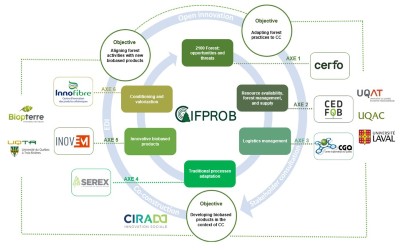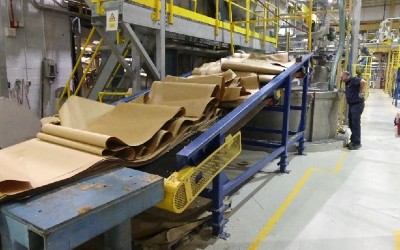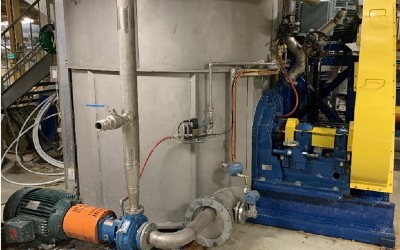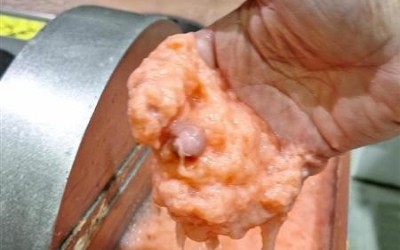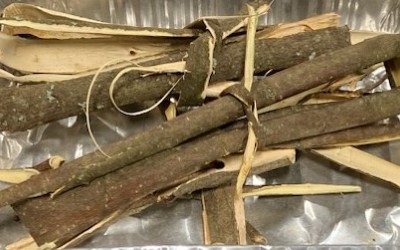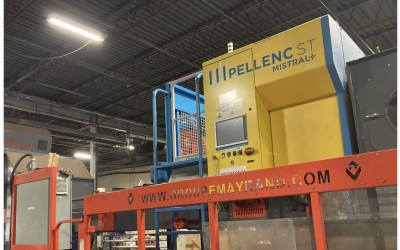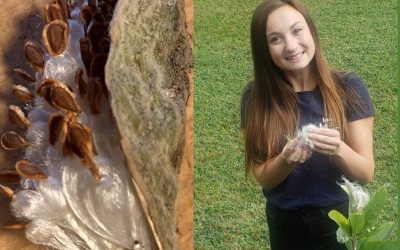News
Industrial emissions: seeing the invisible to take action
Industrial emissions: seeing the invisible to take action By Olivier Rezazgui, Researcher, Innofibre. In an increasingly industrialised and interconnected world, environmental issues are becoming more and more important as the years go by. Among these...
Catalyst for innovation from forest to bio-based products (CIFPROB-FRQ)
CATALYST FOR INNOVATION FROM FOREST TO BIO-BASED PRODUCTS (CIFPROB FRQ): A new Quebec network to strengthen the province's forest bioeconomy and support climate change adaptation Forests are essential to the people of Quebec—for their ecological, recreational,...
To be recyclable or not to be recyclable? That is the question.
To be recyclable or not to be recyclable? That is the question. By Gaston Michaud, Researcher, Innofibre. The current transformation of the paper industry involves the creation of new products. These are either completely new products or existing...
Thermochemical conversion of biomass: ashes have so much to say.
Thermochemical conversion of biomass: ashes have so much to say. By Maude Tessier-Parenteau, Research, Innofibre Thermochemical conversion of biomass is a key research...
A tornado struck Innofibre. Did you know that?
A tornado struck Innofibre. Did you know that? By Gaston Michaud, Research Engineer, Innofibre In early 2020, Innofibre installed a new pulper in its pilot plant. The pulper, manufactured by Bolton-Emerson, is called Tornado. In 2024, Kadant acquired...
From textiles to paper!
Transforming textile waste into paper products: A Quebec innovation at the forefront of the circular economy By Éric Desnoes, researcher Innofibre Every year, millions of tons of textile waste end up in landfills, despite their largely untapped...
Innofibre takes part in the National Bioeconomy Campaign
Innofibre Takes Part in the National Bioeconomy Campaign As a recognized research center, Innofibre – Cellulosic Innovation Centre is actively participating in the national campaign to promote the bioeconomy in Canada, led by Bioindustrial Innovation Canada...
A thousand and one ways to enhance the value of willow!
A thousand and one ways to enhance the value of willow! Author: Mélanie Trudel, researcher at Innofibre In Quebec, there are more than forty species of native willows. The cultivation of shrub willows has gained popularity in recent years due to its many...
The Future of Waste Sorting…
The Future of Waste Sorting… By Cyrine Boussabbeh, Researcher, Innofibre What to do with the growing amounts of municipal, industrial, and commercial waste? This is the question we constantly ask ourselves to find solutions to divert them from landfills,...
The Unseen Damage of the Sun
The Unseen Damage of the Sun By Caroline Lachance, Technician, Innofibre Nowadays, everyone is aware of the damage that the sun can cause to the skin, such as cancer. Sunscreens are applied to block the sun's ultraviolet (UV) rays before they penetrate the...
Milkweed: it’s fine to value the silk, but valuing the whole plant is better!
Author: Annabelle St-Pierre, Researcher at Innofibre Milkweed has gained in popularity in Quebec (Canada) ever since people have begun to recognize of the value of its silk. This plant generates a lot of interest for the textile industry for the manufacturing...
The Forest at use for the Iron and Steel Industry!
Author: William Belhadef, researcher at Innofibre Is it possible to imagine a future for biocoal in the iron and steel industry? Over the past 15 years, the popularity of biocoal (commonly called charcoal) has been increasing at a rapid pace, with ten times...


